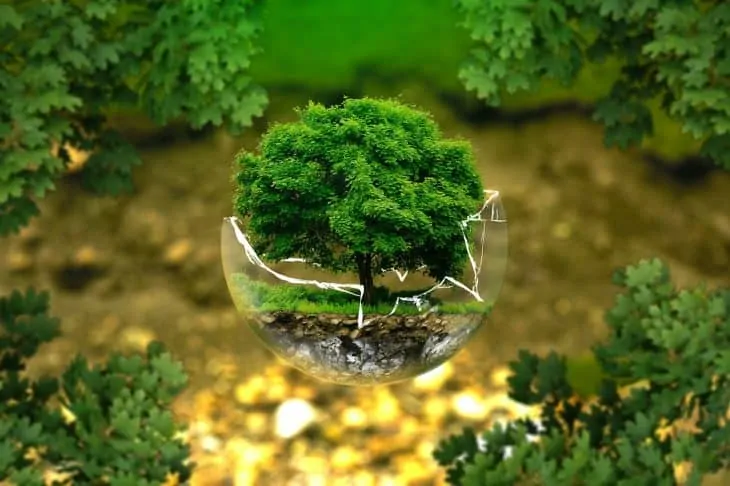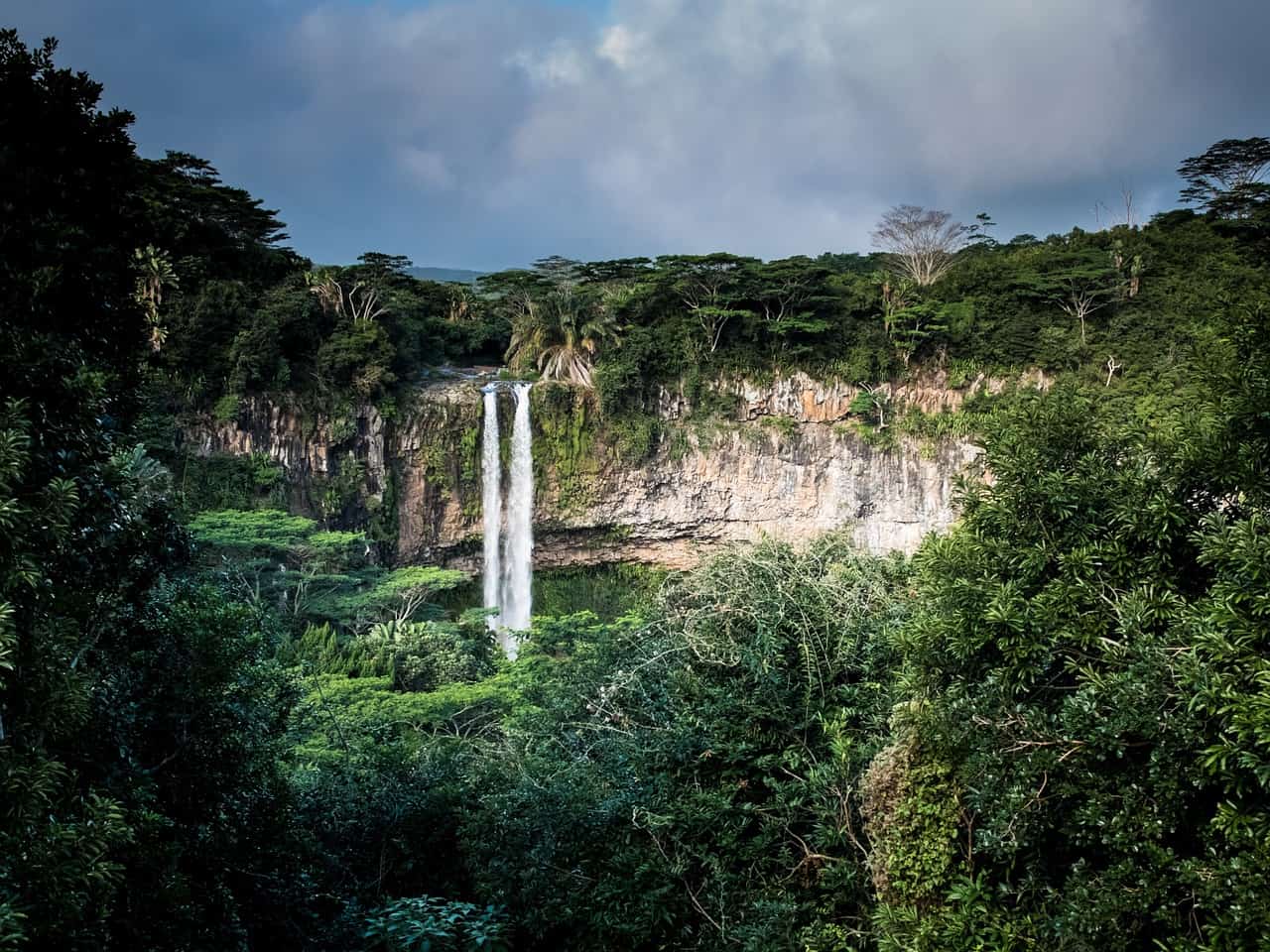
Ecology isn’t as popular as other fields of science like physics or astronomy. However, that doesn’t mean it’s useless. In fact, a better understanding of ecology can help us save our planet. Learn more about the dynamics between living things and their environment with these ecology facts.
- 27,000 trees get cut down every day to make toilet paper alone.
- Humanity uses an estimated 80 trillion aluminum cans every year.
- Plastic waste kills an estimated 1 million aquatic animals in the sea every year.
- Glass takes at least 4000 years to break down in full.
- On average between 150 to 200 species go extinct in a single day.
- Antoni van Leeuwenhoek and Richard Bradley introduced the concepts of food chains, population regulation, and productivity in the 17th century.
- Alexander von Humboldt first recognized ecological gradients in the 18th century.
- Charles Darwin developed the Theory of Evolution and laid down the foundation of soil ecology in the 19th century.
- Ernst Haeckel first called the field ecology in 1866.
- Starting in the early 20th century, ecology shifted from a descriptive science to analytical science.
- Frederic Clements introduced the idea of superorganisms in 1905.
- Vladimir Vernadsky introduced the idea of biospheres in the 1920s.
- Raymond Lindeman introduced trophic dynamics in 1942.
- Kinji Imanishi introduced the ideas of natural harmony and habitat segregation in the 1950s.
- Ecology played a major factor in the environmentalist movements of the 1960s and 1970s.
- Ecology translates from Greek to English as the “study of the house.”
- Ecology is a multidisciplinary field.
- Applications of ecology range from environmental conservation to urban planning.
- Cities have ecosystems too.
- Old or destroyers computers pose an environmental hazard because of toxic materials in their components.
Ecology is organized according to a heirarchy.
This hierarchy goes from small units to big ones. The smallest unit is the genes that make up the DNA of every living thing on Earth. The next step on the hierarchy is cells, the basic unit of all life. From cells, next in the hierarchy are tissues, organs, organisms, and species. This is followed by populations, communities, ecosystems, biomes, and the biosphere.

In ecology, small changes can be catastrophic.
One of the most important ecology facts is its delicate balance. A small change in any level of the hierarchy could affect the biosphere as a whole. For example: A drop in sea otter populations will lead to an increase in sea urchins, a staple food for sea otters. Sea urchins feed on kelp, and their rising population would eliminate large stretches of kelp. This, in turn, will affect other species that feed on kelp, such as sea cows and other marine animals.
Habitats are an important concept in ecology.
Habitats refer to the kind of environment in a given area, which affects the evolution of species that live there. For example, animals in hot areas with limited water like deserts evolved nocturnal lifestyles.
By being active at night, nocturnal creatures avoid the extreme heat of the day. Evolution is not limited to animals either. Plants in desert environments evolved deep and long-reaching roots to collect limited water with. They also evolved the ability to store large amounts of water, as demonstrated by the cactus.
A related concept to habitats is the niche.
A niche is a specific set of conditions that allows a single species to thrive. Ecologists further divide niches into fundamental and realized niches. A fundamental niche only includes environmental factors, while a realized niche includes other factors.
At present, ecologists still debate whether or not it’s possible for several species to share a single niche.
Some species can build their own niches.
An example of this is termite nests. These nests provide more than a home for the termites but keep temperature and humidity within their species’ comfort zone. They also provide protected spaces for the termites and their young.
Another example is how beavers build dams to make ponds wherein they live safe from predators. These ponds also serve to ensure that beavers have enough food to live on in winter. How’s that for ingenuous examples of Ecology Facts?
Evolution is one of the most misunderstood concepts in ecology.
Often, evolution gets defined as survival of the fittest by natural selection. People interpret this as the strongest or smartest species surviving at the expense of other species. However, this isn’t actually the case.
In fact, evolution doesn’t say anything about species being stronger or smarter than others. Instead, evolution entails that an animal must adapt to their habitat in the best way. Adaptable species then pass on traits to their offspring, so they can also cope with their environment. How’s that for ecology facts?

Behavioral ecology ties with evolution.
A species’ behavior determines how they adapt to the environment. It also plays a role in passing their genes onto the next generation, and the development of courtship and mating behavior in different species.
Survival instincts such as fight or flight response are another example, based on the hypothesis that animals can only pass on their genes and traits if they avoid getting killed by a predator.
Coevolution is an ecological phenomenon where multiple species cooperate to survive and thrive.
Coevolution further disproves the concept that evolution works against other species. For example, flowering plants evolved in cooperation with various insect species, particularly bees. Flowering plants provide sugars in nectar for bees to collect and process into honey for food. In return, the insects carry pollen between different flowers and thus drive the plants’ reproductive processes.
Another ecological concept related to evolution is biogeography.
Biogeography is the study of the relationship between geography and life. It also studies how species migrated across the Earth over time, and how migration contributed to their final form today. The connection to evolution lies in how species adapt to survive and thrive to their environment as it changes with their migration.
Selection Theory is an ecological theory on the effects of population on evolution.
According to Selection Theory, small populations mean abundant resources. This leads to little pressure to compete and adapt, with little changes to a species’ individuals. In contrast, bigger populations bring limited resources. This causes competition for those resources, introducing the pressure to adapt. The resulting adaptations are then passed onto the next generation, causing the species to evolve and reflect them.
Biomes can be both big and small at the same time.
Biomes are usually among the bigger steps of the ecological hierarchy. Scientists usually name biomes after their climates, such as tropical rainforests or hot deserts. However, the size of biomes can also depend on the scale of the life forms living in it. For us humans, we have deserts and rainforests. But for bacteria and other microbes, their hosts become biomes in themselves. Biologists call them microbiomes. How’s that for ecology facts?

Community ecology studies relationships between species.
Community ecology studies how various species affect each other within a given area. Environmental factors are also considered in community ecology. This includes the arrival of invasive species (pests), or the extinction of old species. Changes in the weather or climate, as well as other natural resources like clean water, also affect communities.
Social ecology studies how species interact.
As the name implies, it involves the study of social animals such as humans, dogs, small mammals – even as small as spiders and mold. Social ecologists discovered that society in nature is both genetic and non-genetic in nature.
Species related to each other are naturally-inclined towards their kind. However, ecologists have also observed unrelated species coexisting according to mutual interests.
The Park Grass Experiment is one of the longest-running experiments in ecology.
Conducted from 1856 until now, the Park Grass Experiment is one of the longest-running studies in science. Based in Hertfordshire in the United Kingdom, the experiment studies the effects of fertilizers on hay yields. The study has since discovered that most other studies underestimate the long-term effects of fertilizers, such as on soil acidity.
Others include insights on how plant competition and climate change relate to each other, and evolutionary changes at the micro-level. The experiment also provided long-term evidence for air pollution studies for over a century. How’s that for neat ecology facts?
Holism is a basic concept in ecology.
Introduced in 1926 by Jan Smuts, holism proposes that ecosystems are more than the sum of their parts. Holism also concludes that life forms are self-organizing, and systems involving life forms operate independently from the individual species that comprise it. Smuts describes ecosystems as a result of how species interact with each other.
Food chains are among the most basic concepts in ecology.
One of the ecology facts that you’ve probably heard in grade school is the existence of food chains. Other than illustrating how energy is passed around by different species, food chains also show how linked and connected each species is. Much like how a chain breaks with the removal of a single link, a food chain will also fall apart with the extinction of a single species.
Trophic levels are another hierarchy in ecology.
They’re also similar to food chains, but unlike food chains, trophic levels are pyramidal. Trophic levels also illustrate how species are dependent on each other. Abiotic or nonliving sources of food and energy are also considered in trophic levels. At the very bottom of the trophic pyramid is soil, followed by plants that depend on the soil for nourishment. Since plants use photosynthesis and draw minerals and others from the soil, ecologists call them autotrophs or producers.
Below and above them are heterotrophs, or consumers. Below plants are microbial and fungal life forms, which consume dead plants or animals for food. Above plants are animals, divided into primary or secondary predators. Primary predators are more common, feeding on plants for nourishment. Secondary predators are less common and feed on both plants and primary predators for nourishment.

The biosphere is the biggest in the ecological hierarchy.
All the processes and factors affecting biospheres are planetary in scale. This includes the water, carbon, and nitrogen cycles among others. At present, the most concerning factor for ecologists is the manmade increase in greenhouse gases, causing the greenhouse effect to go into overdrive, resulting in global warming.
Global warming is not the only way humanity affects the biosphere.
In fact, humanity’s advancement affected the biosphere even in prehistoric times. Humanity drove entire species to extinction long before civilization arose, such as woolly mammoths and the saber-toothed cat. The development of agriculture caused a massive shift in the plant kingdom, with the rise of vast fields of homogenous crops like wheat or rice as staple food.
Civilization only increased humanity’s impact on the biosphere, especially with the Industrial Revolution. Humanity’s unprecedented effect on the planet dating back to the last Ice Age has been described as the Anthropocene.
Ecology helps humanity reverse its negative effects on the biosphere.
By uncovering how all life in the world depends on each other and the environment, ecologists then figure out how humanity’s actions affect other life forms and the environment. This teaches humanity how to reverse or reduce the negative effects of our civilization.
Examples of this include reforestation efforts, as well as animal conservation efforts. The development of green energy and green industrial processes are also examples of how humanity can maintain its advanced civilization without damaging the environment even further.

Was this page helpful?
Our commitment to delivering trustworthy and engaging content is at the heart of what we do. Each fact on our site is contributed by real users like you, bringing a wealth of diverse insights and information. To ensure the highest standards of accuracy and reliability, our dedicated editors meticulously review each submission. This process guarantees that the facts we share are not only fascinating but also credible. Trust in our commitment to quality and authenticity as you explore and learn with us.
